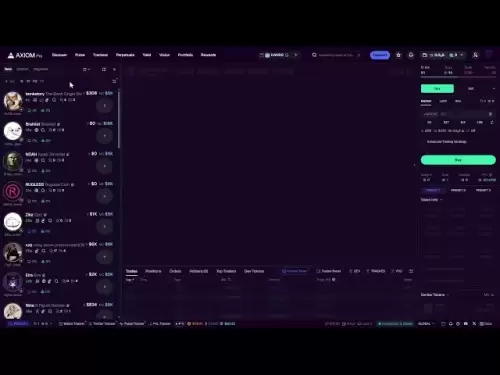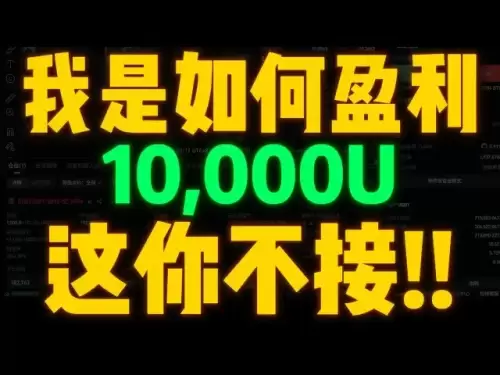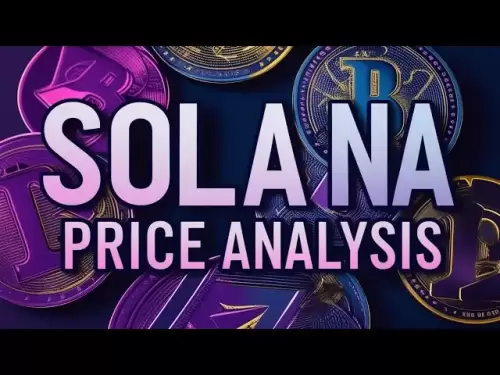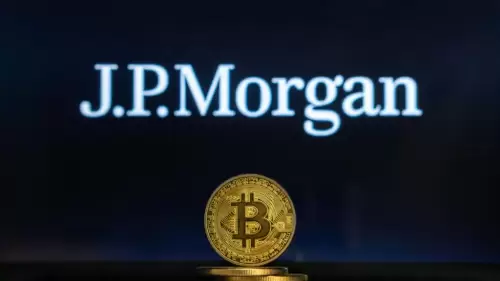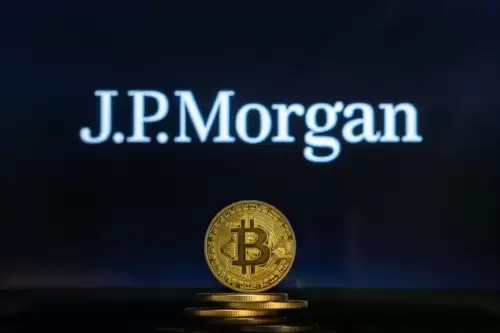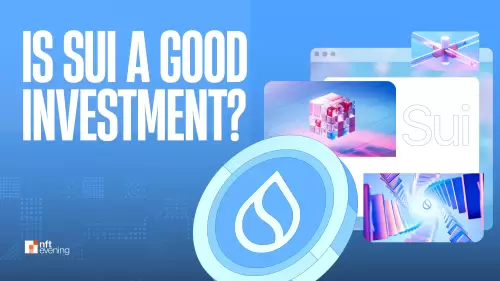 |
|
 |
|
 |
|
 |
|
 |
|
 |
|
 |
|
 |
|
 |
|
 |
|
 |
|
 |
|
 |
|
 |
|
 |
|
Cryptocurrency News Articles
Tokenized Stocks: Revolutionizing Liquidity and Tokenization in Finance
Jul 03, 2025 at 05:03 am
Explore how tokenized stocks are transforming finance by addressing liquidity challenges and streamlining asset tokenization for enhanced market efficiency.

Tokenized stocks are shaking up the financial world, but early models reveal some serious structural issues. Let's dive into the dynamics of tokenized stocks, liquidity, and tokenization, and see what's really going on.
The Promise and Pitfalls of Tokenized Stocks
Tokenized stocks have recently made their debut on-chain, but the initial results are a mixed bag. While the concept is promising, early models are grappling with significant challenges: limited liquidity, wide spreads, and persistent price discrepancies. Why is this happening?
Liquidity Constraints and Pricing Dislocations
One of the main issues is severely limited market depth. For instance, a tokenized version of AAPL recently showed a mere $195 of depth before hitting 2% slippage, with spreads around 0.64%. At one point, it even traded at a 14.92% premium over the underlying equity price. These aren't just temporary hiccups; they reflect fundamental limitations in the current structure.
High-friction minting and redemption mechanisms prevent efficient arbitrage. Without seamless arbitrage, secondary market prices inevitably diverge from the underlying reference prices. We've seen similar problems with stablecoins, where even fully backed ones can deviate from their peg due to gated redemptions and slow arbitrage.
Ondo Global Markets: A Different Approach
Ondo Global Markets (“Ondo GM”) is tackling these challenges head-on by ensuring liquidity is inherited from public markets rather than recreated. Their approach involves fully backed tokens secured by underlying stocks and ETFs, giving investors access to the liquidity of traditional markets. When you buy TSLA via Ondo GM, stablecoins fund the purchase, TSLA is acquired on NASDAQ, and you instantly receive a TSLAon token.
Tokenizing real-world assets requires solving for liquidity from the get-go. Ondo GM delivers this, offering seamless on-chain access to traditional exchange liquidity across hundreds of stocks.
Robinhood's Bold Move into Tokenized Assets
Robinhood has officially launched its trading service for tokenized stocks and ETFs for users in the European Union and the EEA, marking a significant step into blockchain and crypto markets. This allows European investors to access over 200 popular U.S. stocks, including giants like Apple, Nvidia, and Microsoft, as well as private companies like OpenAI and SpaceX.
The platform allows users to trade tokenized versions of real stocks 24/7, with a small 0.1% FX fee for converting local currencies to U.S. dollars. Initially, these tokens are issued on the Arbitrum network, leveraging its low fees and fast transaction speeds. Robinhood plans to migrate this feature to its own proprietary Layer-2 blockchain by late 2025 or early 2026, further integrating its infrastructure into the decentralized finance ecosystem.
Strategic Token Minting and Market Enthusiasm
Robinhood has already issued thousands of stock tokens on Arbitrum, including tokens representing shares of OpenAI. While not officially a “testnet,” analysts see this as a pilot to validate the technical architecture and execution processes of the token issuance model. Each stock token offers economic exposure to the underlying asset, including dividend payments, but doesn't confer voting rights.
The market has responded positively to Robinhood's announcement. The company’s stock rose over 12% on June 30th and has appreciated over 150% in 2025, fueled by its strategic expansion into crypto and tokenized assets. Analysts from firms like KeyBanc and Deutsche Bank have raised their price targets, hailing Robinhood as a “must-own” stock for investors betting on the convergence of traditional finance and blockchain.
Katana: Revolutionizing DeFi with Innovation and Sustainability
Katana, a DeFi-first layer-2 blockchain, has officially launched its mainnet, setting a new standard in decentralized finance (DeFi). With over $200 million in pre-deposits, Katana’s debut has become one of the most capitalized launches in the DeFi space, underscoring its potential to address liquidity challenges and enhance capital efficiency.
Addressing Liquidity Challenges in DeFi
Katana tackles liquidity issues through innovative mechanisms designed to optimize liquidity and capital efficiency. VaultBridge allows users to generate yield on Ethereum-based assets, while Chain-Owned Liquidity (CoL) retains net sequencer fees and converts them into liquidity reserves, promoting long-term stability.
Katana also introduces 'productive TVL,' a metric that focuses on capital actively deployed into yield-generating strategies, offering a more accurate representation of a platform’s impact. Its blockchain-agnostic design enables cross-chain yield generation, allowing users to maximize returns across multiple ecosystems.
The Future of Tokenization
JPMorgan's blockchain arm, Kinexys, is partnering with S&P Global Commodity Insights to explore tokenization for the management and issuance of carbon credits. This initiative focuses on how blockchain can handle credit lifecycle management, data compatibility, and registry access, aiming to establish standardized infrastructure that enhances transparency and market liquidity.
Final Thoughts
Tokenized stocks are still in their early stages, but the potential is undeniable. While challenges remain, innovative solutions like those from Ondo GM, Robinhood, and Katana are paving the way for a more liquid, efficient, and accessible financial future. It’s like watching the internet being built all over again, but this time, it’s all about finance. Buckle up, because it's gonna be a wild ride!
Disclaimer:info@kdj.com
The information provided is not trading advice. kdj.com does not assume any responsibility for any investments made based on the information provided in this article. Cryptocurrencies are highly volatile and it is highly recommended that you invest with caution after thorough research!
If you believe that the content used on this website infringes your copyright, please contact us immediately (info@kdj.com) and we will delete it promptly.



















